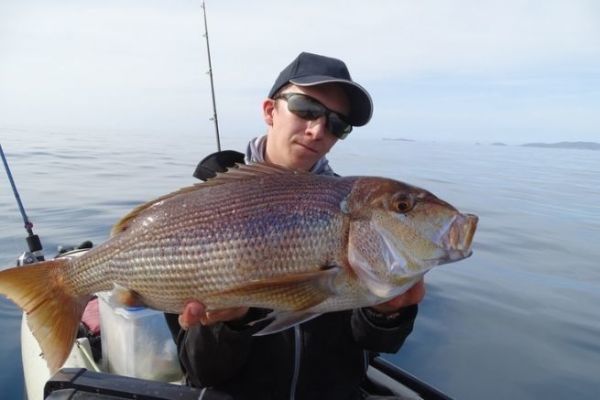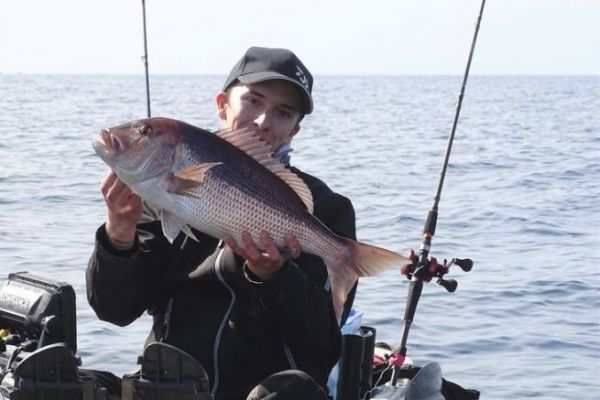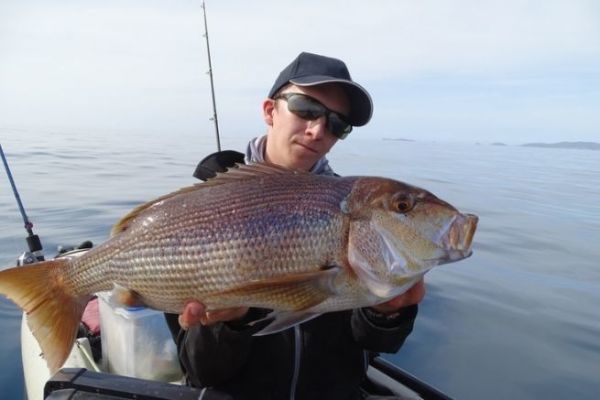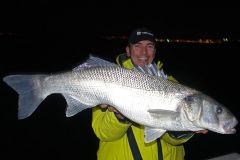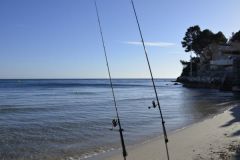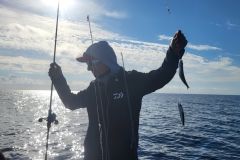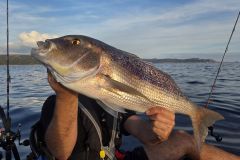Denti fishing techniques
Denti are mainly found in the Mediterranean, but global warming is pushing them increasingly towards the Atlantic. The denti is a predatory fish of the sparidae family, distinguished by its teeth designed to feed on fish rather than shellfish. So it's not your typical sparid fish (like sea bream or sar) that you'll be fishing with a mussel or crab. The denti feeds mainly on fish and cephalopods, depending on the season. It is therefore frequently stalked using livebaits, either slowly trolled with a squid or redfish, or vertically fished with a squid or rockfish.
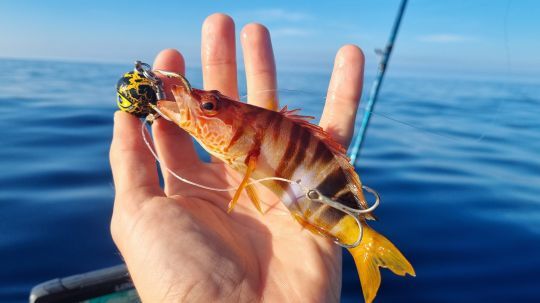
Denti can also be fished with lures, but this requires a good knowledge of fishing areas and fish movements. The soft lure is the preferred casting technique, as it allows you to fish different water layers while fishing away from the boat. Finally, jig fishing, although somewhat out of fashion and less and less practised, allows you to decide on the most aggressive fish.
The seasons and the movement of the denti
Denti is a fish that moves around a lot in a year, depending on water temperatures and the presence of food. From late April to mid-June, Denti are extremely hard to catch, which is a good thing in itself, as they are able to reproduce in more tranquil conditions. In summer, denti follow schools of forage fish and can be found at depths of between 10 and 40 meters.
They are most interesting to catch in autumn, when they descend into the water (40 to 60 meters), depending on temperatures, and build up their reserves before winter. Finally, during the coldest months, from December to March, denti are often found at depths of over 80 meters. Note that the presence of squid in winter or cuttlefish in spring can modify the behavior of fish, which will follow these prey and feed almost exclusively on them.
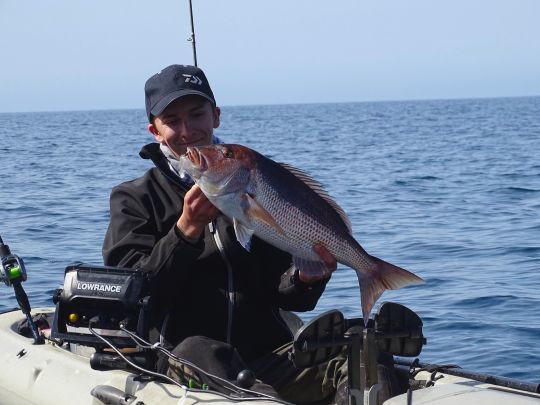
Best practices for sustainable fishing
Some species of sea fish, such as the denti, are highly sensitive to overfishing for several reasons. Firstly, in the same way as a grouper, the denti suffers decompression trauma when brought to the surface quickly during a fight. This phenomenon is visible as, under the pressure of the inflating swim bladder, the fish's stomach protrudes through its mouth. This phenomenon is not always fatal, but it can seriously damage the denti's vital organs.
To avoid this, we have two options: drastically reduce the ascent speed to give the fish as much time as possible to decompress, especially as the fight is very often won after taking the fish off 20 metres. You can also avoid fishing deeper than 40 metres when you want to catch and release fish. Avoid keeping too many fish as much as possible, as denti take a long time to grow and once a stone is emptied, no more denti will return.

 /
/ 